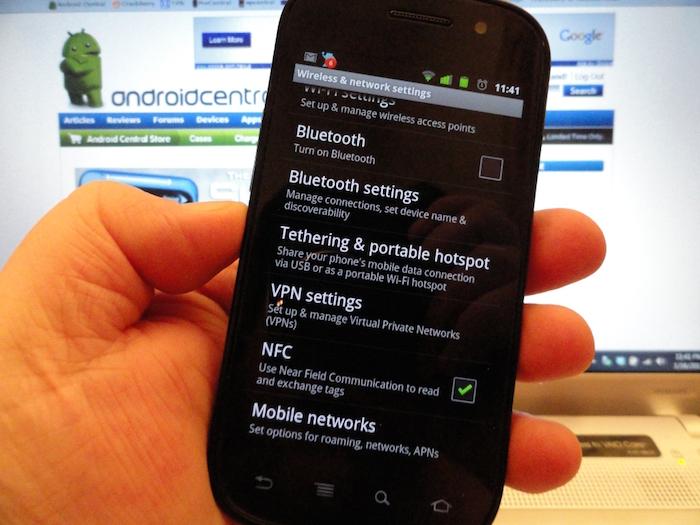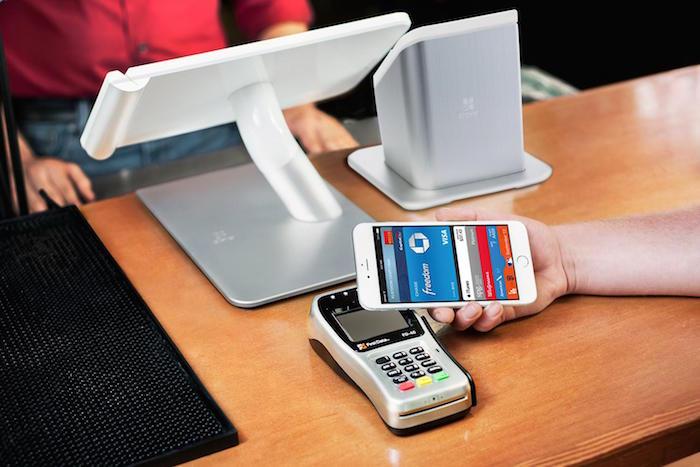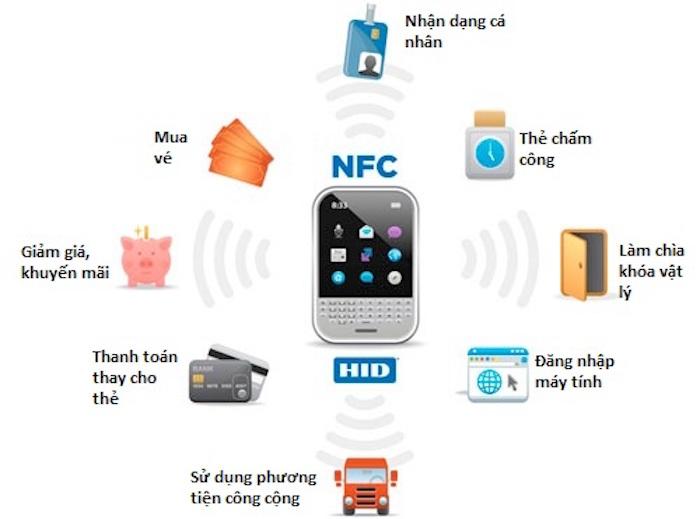You are viewing the article What is NFC communication? at Tnhelearning.edu.vn you can quickly access the necessary information in the table of contents of the article below.
NFC communication, short for Near Field Communication, is a wireless communication technology that allows for simple and secure interactions between electronic devices. It enables devices to establish a connection by bringing them close together, typically within a few centimeters. NFC has gained widespread popularity due to its convenience and versatility, facilitating a variety of applications such as contactless payments, mobile ticketing, access control, data exchange, and more. Understanding the fundamental concepts and capabilities of NFC communication is essential in comprehending the significant role it plays in our increasingly interconnected world. In this article, we will delve into the intricacies of NFC, exploring its functioning, use cases, advantages, and potential future developments.
In the smartphone world, the NFC connection standard has emerged as a new phenomenon, attracting a lot of users’ attention. So what is the NFC or communication standard?
What is NFC?
NFC (short for Near-Field Communications) is a near-field communication technology that uses magnetic induction to make a connection between devices when there is direct contact or close proximity. NFC is developed based on the principle of identification by radio frequency signals with a maximum data transmission rate of 424 Kbps.
Due to the relatively short data transmission distance (within 4 cm), transactions via NFC technology are considered safe. NFC-equipped devices are usually mobile phones.
The phone can communicate with smart tags (also known as Tags), another phone, or NFC-enabled electronic or entertainment devices. In addition, NFC is also combined with many technologies used in public systems such as ticketing, electronic parking tickets, bill payment, etc.
An NFC tag is a very thin circuit that holds simple (rewritable) information. It does not need to use a power source.


Today, NFC technology is being oriented to become an effective mobile payment tool. An NFC-enabled smartphone or tablet can make transactions via credit card or act as a key or ID card. Most recently, Apple brought NFC to the iPhone 6 and 6 Plus duo to serve the Apple Pay feature.

At the present time, NFC is integrated into many devices running on many different operating system platforms, and has almost become a common standard for newly launched high-end phones. Includes Android, iOS and Windows Phone as well as BlackBerry 10.
Japan is a country that has adopted NFC very early. In July 2004, the first NFC-enabled mobile phone for mobile payments was launched in Japan, and by this time there have been around 100 million registered users of the NFC mobile payment service. The technology Japan uses is called “FeliCa”, a technology of its own, but it is also built on top of NFC. Even so, Japan is also trying to standardize its technology to better fit the world.
How does NFC work?
For NFC to work, we must have 2 devices, 1 is the reader (usually a phone) and the second is the target (target – usually another phone, nfc card, speakerphone…). The reader will actively generate radio wave fields (essentially electromagnetic radiation) sufficient to power the target device in passive mode. Therefore, as mentioned above: NFC tags do not need energy to operate, but when needed, it will be taken from the reader. This is an extremely significant feature because it allows people to make tags, stickers, keys or NFC tags more compact because no batteries are required.
Thanks to NFC, we only need to touch 2 devices together and they can connect, without having to declare many things like Bluetooth. Normally, we often touch 2 phones to send pictures, web links, information … or as shown below, touch the phone to the NFC headset to connect them quickly.

Practical application?
With its outstanding features, NFC is widely applied and the most advanced feature that people often talk about is electronic payment. In addition, with NFC-enabled phones and devices, it is also a quick and simple connection feature

Using public transport: This can be considered part of mobile payments, but it should also be mentioned separately. Public transportation in big cities is in dire need of convenient payment methods like NFC.
Buy tickets: You can buy any kind of ticket with your NFC phone, from movie tickets, concert tickets, stadium tickets or even instead of checking in at the airport or simply a tram card. death.
Keys: Imagine throwing away all your keys at home and replacing them with a cell phone. With the use of NFC, all you need to do is lightly touch the door of your home, office or hotel, start the car…..
Check-in and review a certain place: Recently, Google has started to put NFC labels on some stores and restaurants in the US. With NFC phones, you just need to touch lightly to consult information, reviews, food or goods inside. Those of you who often use Foursquare to checkin also benefit, no need for network or GPS anymore, just touch the card to checkin.
Data exchange: Two NFC phones can be made to exchange data after a connection is established by bringing them within the NFC’s operating range. Users just need to touch their phone with someone else and the data will be transferred.
For Bluetooth or Wi-Fi pairing: Users only need to bring two NFC-enabled devices together, NFC will create an environment for them to connect without needing to declare through many steps.
In general, although there are many effects, the use of NFC is divided into 3 groups: Touch and Go (for example, touch to open the door), Touch and Confirm (add an extra layer of security for mobile payments). such as entering a PIN to confirm payment) or Touch and Connect (sharing data with another device).

Which devices are being integrated NFC?
Currently, most recently launched smartphones have NFC built-in, all you need to do is pick it up and experience it.
+ Samsung phone products: Galaxy S5 , Galaxy Note 4 , Galaxy Alpha
+ Sony phone products: Xpreia Z3, Xperia Z3 Compact, Xpreia Z2
+ HTC phone products: HTC Desire Eye, HTC One E8, HTC One M8
+ Asus phone products: Zenfone 5, Zenfone 6
+ LG phone products: LG G3, LG G2
+ Oppo phones: Oppo Find 7a, Oppo R5, Oppo N1 Mini, Oppo R1
Android tablets: Sony Xperia Z3 Tablet Compact, Samsung Galaxy Tab S 10.5 (SM-T805), Samsung Galaxy Tab S 8.4 (SM-T705), Google HTC Nexus 9 Volantis, Lenovo Yoga Tablet 2 Pro, Asus MeMo Pad 8, Dell Venue 8″
see more
What is Bluetooth connection?
What is GPS?
What is 3G network?
DienmayXANH.com
In conclusion, NFC communication is a wireless technology that allows devices to exchange data and information over short distances. It operates on the principle of electromagnetic induction, with one device acting as a sender and the other as a receiver. NFC enables various applications such as contactless payments, ticketing systems, and data sharing between devices. It offers convenience, security, and ease of use, making it increasingly popular in everyday life. As NFC technology continues to advance, it is likely to see even more widespread adoption and integration into various industries and applications.
Thank you for reading this post What is NFC communication? at Tnhelearning.edu.vn You can comment, see more related articles below and hope to help you with interesting information.
Related Search:
1. How does NFC communication work?
2. Advantages of NFC communication
3. NFC communication explained
4. Applications of NFC technology
5. Difference between NFC and RFID
6. Security features of NFC communication
7. NFC communication uses in mobile payments
8. How can NFC be used for data transfer?
9. NFC communication in smart devices
10. Future prospects of NFC technology



